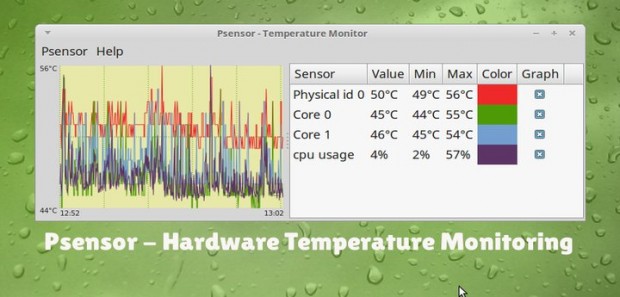

- #RAID MONITOR LINUX HOW TO#
- #RAID MONITOR LINUX DRIVERS#
- #RAID MONITOR LINUX DRIVER#
- #RAID MONITOR LINUX SOFTWARE#
- #RAID MONITOR LINUX WINDOWS 7#
#RAID MONITOR LINUX SOFTWARE#
This firmware-based RAID (also known as “ fake RAID”) is an attractive option because it permits functionality such as disk mirroring without further monetary investment.įirmware and software RAID differ from hardware RAID in that the array is ultimately managed by the operating system instead of a dedicated controller. Intel Rapid Storage Technology, previously known as Intel Matrix RAID, is a feature included on several modern Intel chipsets. It is useful to have an understanding of several concepts before proceeding: Intel Rapid Storage Technology While basic RAID concepts are beyond the scope of this guide, I will describe appropriate use cases of Intel RST versus other solutions and describe the process of configuring a RAID-1 array. This post aims to serve as a guide for users installing Arch Linux with RAID-1 using Intel Rapid Storage Technology (RST). Additionally, it can be extremely unnerving to configure storage when one isn’t entirely sure if what they’re doing is correct. Information is often conflicting or even entirely out-of-date. This is somewhat due to the fact that the amount of information on the topic is absolutely overwhelming.
#RAID MONITOR LINUX HOW TO#
Please submit patches if you aware how to fix this issue or open ticket to the vendor.RAID is a common choke point for users installing Linux. Use -d accraid.,force flag to try anyway. It is currently disabled on Windows due to unresolved bugs. Adaptec support for Windows was added in release 6.4. Aacraid support for Linux was added in release 6.3.ġ5.
#RAID MONITOR LINUX DRIVERS#
According to user reports, some Windows drivers for LSI MegaRAID and Dell PERC 6 implement CMSI (see ticket #243 and drive-database mailing list), other drivers don't (see support mailing list).ġ4. SAS drive support was added in release 6.0.ġ3. Areca SATA/SAS controller support (SATA drives only) for Windows was added in release 5.43. Areca SATA controller support for FreeBSD was added in release 5.42.ġ2.
#RAID MONITOR LINUX DRIVER#
May also work with other controllers if the driver implements CSMI.ġ1. Intel ICHxR RAID (CSMI) support for Windows was added in release 5.41. Direct access support -d megaraid and device scanning was added in release 7.3.ġ0. Support of LSI MegaRAID on FreeBSD is implemented with mfip.ko module and /dev/passX devices. In release 6.1 autoscan functionality implemented for the Linux version.ĩ. Please note that on some controllers device enumeration starts from 8 (use -d megaraid,8 in such cases). Support for LSI MegaRAID controller on Linux was added in release 5.39. SATA auto-detection was added in release 5.43.Ĩ. CCISS (Compaq Smart Array Controller) support for Linux was added in release 5.37. HighPoint RocketRAID support for FreeBSD was added in release 5.39.ħ. HighPoint RocketRAID support for Linux was added in release 5.37.Ħ. SAS drive support was added in release 6.1.ĥ. Areca SATA controller support for Linux was added in release 5.39.Īreca SAS controller support (SATA drives only) was added in release 5.43.
#RAID MONITOR LINUX WINDOWS 7#
With recent driver versions SMART access works on 64-bit Windows 7 (see mailing list) but not on 64-bit XP/2003 (see ticket #172).Ĥ. Initially the SMART support was added only to the 32-bit Windows driver. Provide limited SMART support through tw_cli tool, see man page. For older controllers, smartctl and smartd 3ware 9000 series only (added in release 5.37), Multiple controller and char device support was added in release 5.36.ģ. 3ware support on FreeBSD is available since release 5.33, Support for char devices /dev/twX was added in release 5.33.Ģ. 3ware RAID controllers are supported on Linux

The man pages for controller specific smartmontools options orġ.

HighPoint RocketRAID SATA RAID controllerįile for information about kernel and driver requirements on your platform. Support for disks behind RAIDĬontrollers is highly dependent on both platform and controller type. This distinction between logical and physical disks. I/O controls providing direct access to each physical disk.īut the standard I/O controls available are usually not designed to make Access to SMART functionality relies on ATA or SCSI pass through RAID controllers typically simulate a (logical) disk for each array of (physical)ĭisks to the OS.


 0 kommentar(er)
0 kommentar(er)
